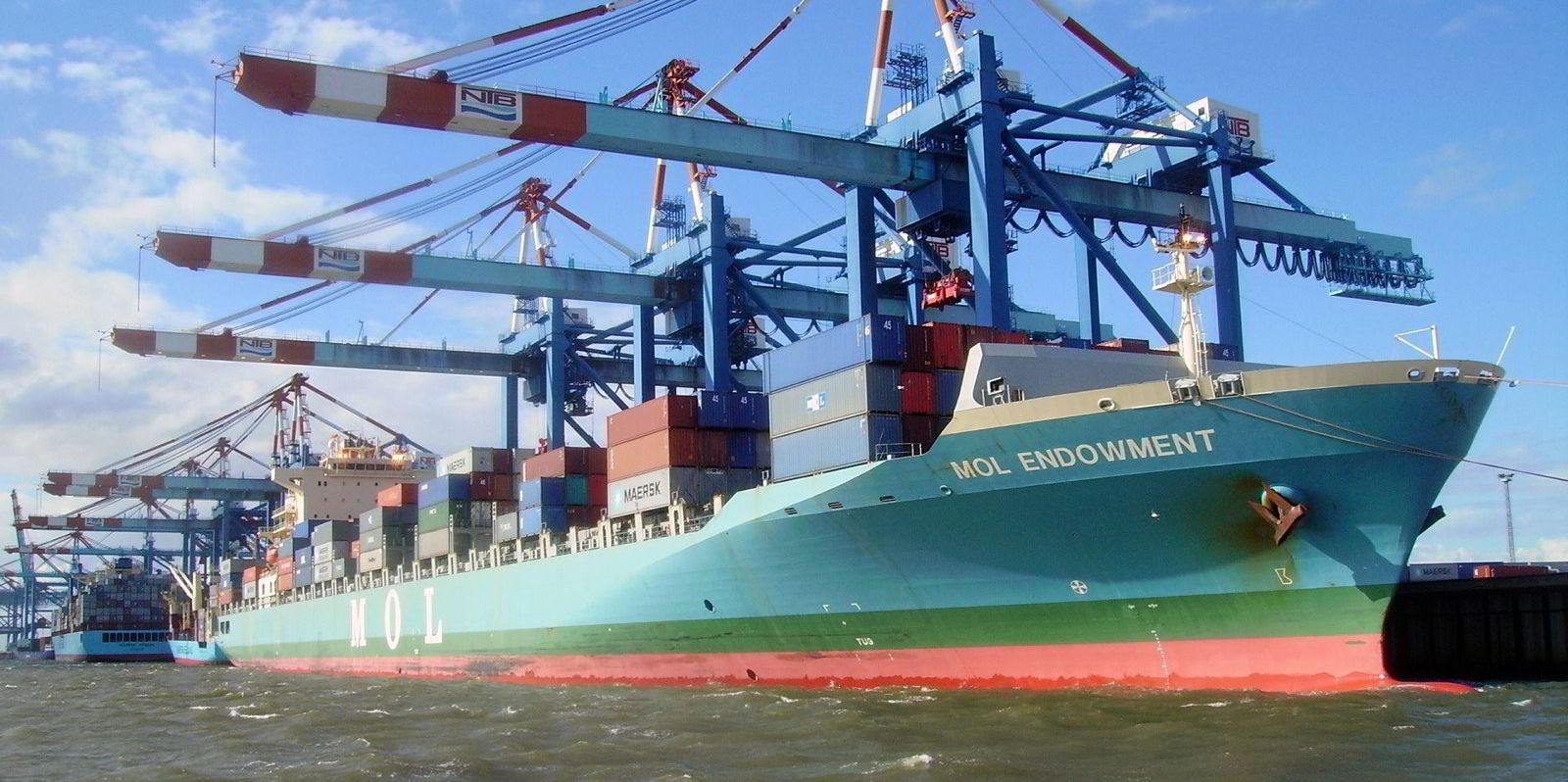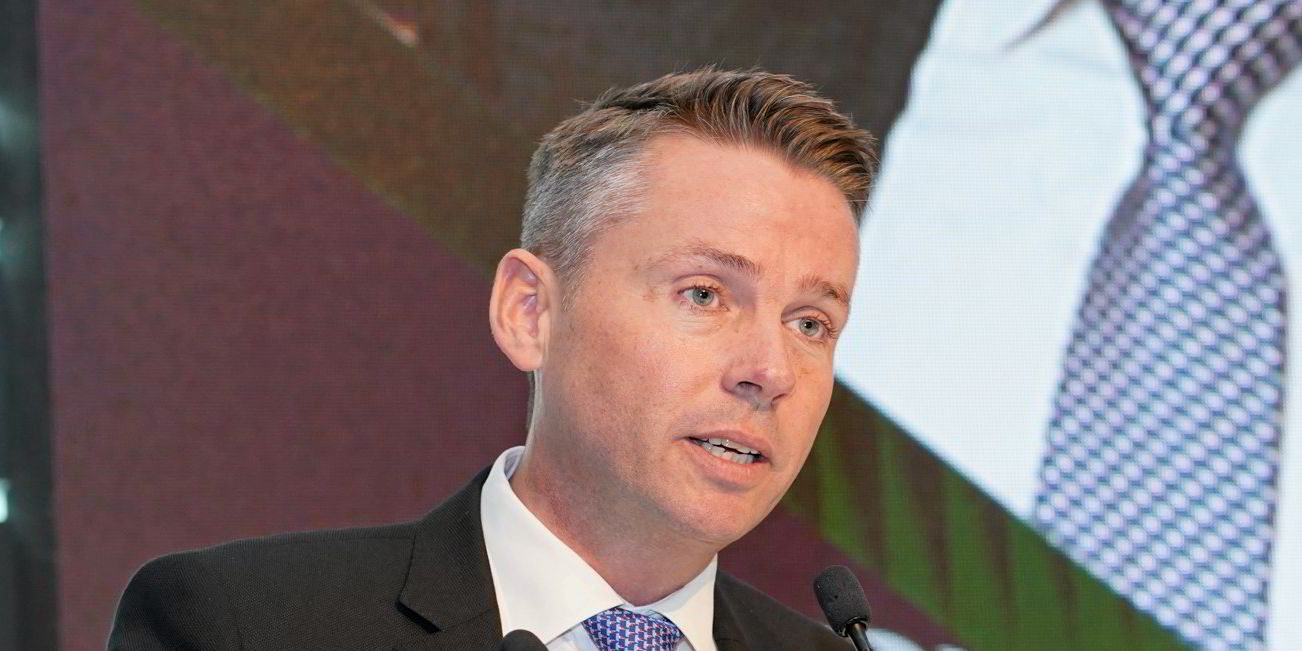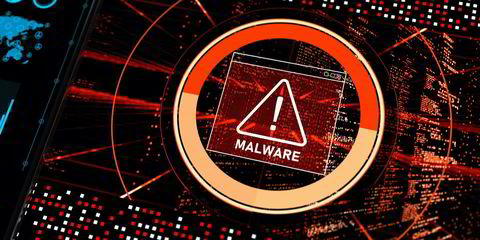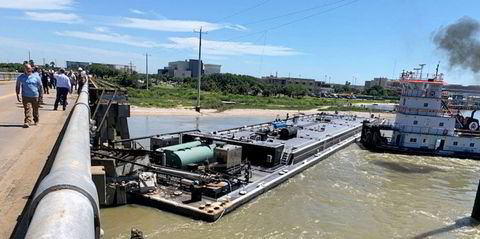A consortium led by the Global Centre for Maritime Decarbonisation (GCMD) has completed trialling two supply chains of biofuel blends sourced from different origins.
The Singapore-based GCMD said the trials will help develop a framework to provide transparency and bolster the integrity of the supply chain, as well as increasing user confidence and lowering the barrier to wider adoption of biofuels.
The trials, conducted between October and February, traced biofuels from overseas production sites to Singapore, where they were blended and bunkered.
About 4,700 tonnes of two sustainable biofuel blends were bunkered on board five vessels, and lab testing of the fuels continued until they were consumed on board.
In the first supply chain, Chevron provided B24 (24% biofuel blend) very low sulphur fuel oil (VLSFO) to two container ships: CMA CGM’s 6,574-teu CMA CGM Maupassant (built 2010) and the Mitsui OSK-owned 4,799-teu MOL Endowment (built 2007), operated by Ocean Network Express (ONE).
The biofuel blend comprised used cooking oil methyl ester, which is derived from residue or feedstocks labelled as 100% waste and certified in accordance with International Sustainability & Carbon Certification standards.
Chevron bunkered B20 (20% biofuel blend) high sulphur fuel oil (HSFO) in two crude tankers: its own 318,600-dwt Singapore Voyager (built 2019) and the 306,300-dwt Elizabeth IA (built 2004), which is owned and managed by the Angelicoussis Group’s Maran Tankers Shipmanagement.
In a separate supply chain, TotalEnergies provided B24 VLSFO to the NYK-owned, 78,945-cbm VLGC Lycaste Peace (built 2003), which is chartered to Astomos Energy.
The trials were undertaken under “business-as-usual” conditions in which individual fuel purchasers nominated their suppliers of choice and bunkering took place with vessels on commercial routes.
ONE noted that the transaction to procure 992 tonnes of biofuel for the MOL Endowment was made digitally through the Singapore Trade Data Exchange, which facilitates the sharing of data between supply chain ecosystem partners through a common data highway to enable secure exchange of information.
This digitisation of bunkering documents reduced the paper-based processes and made the transaction more efficient and secure, the company added.
GCMD brought together fuel purchasers and suppliers, and balanced the “dynamic needs” of the many diverse stakeholders, vessel schedules, equipment and asset availabilities, spanning geographies and factoring in contingencies to complete the two trials.
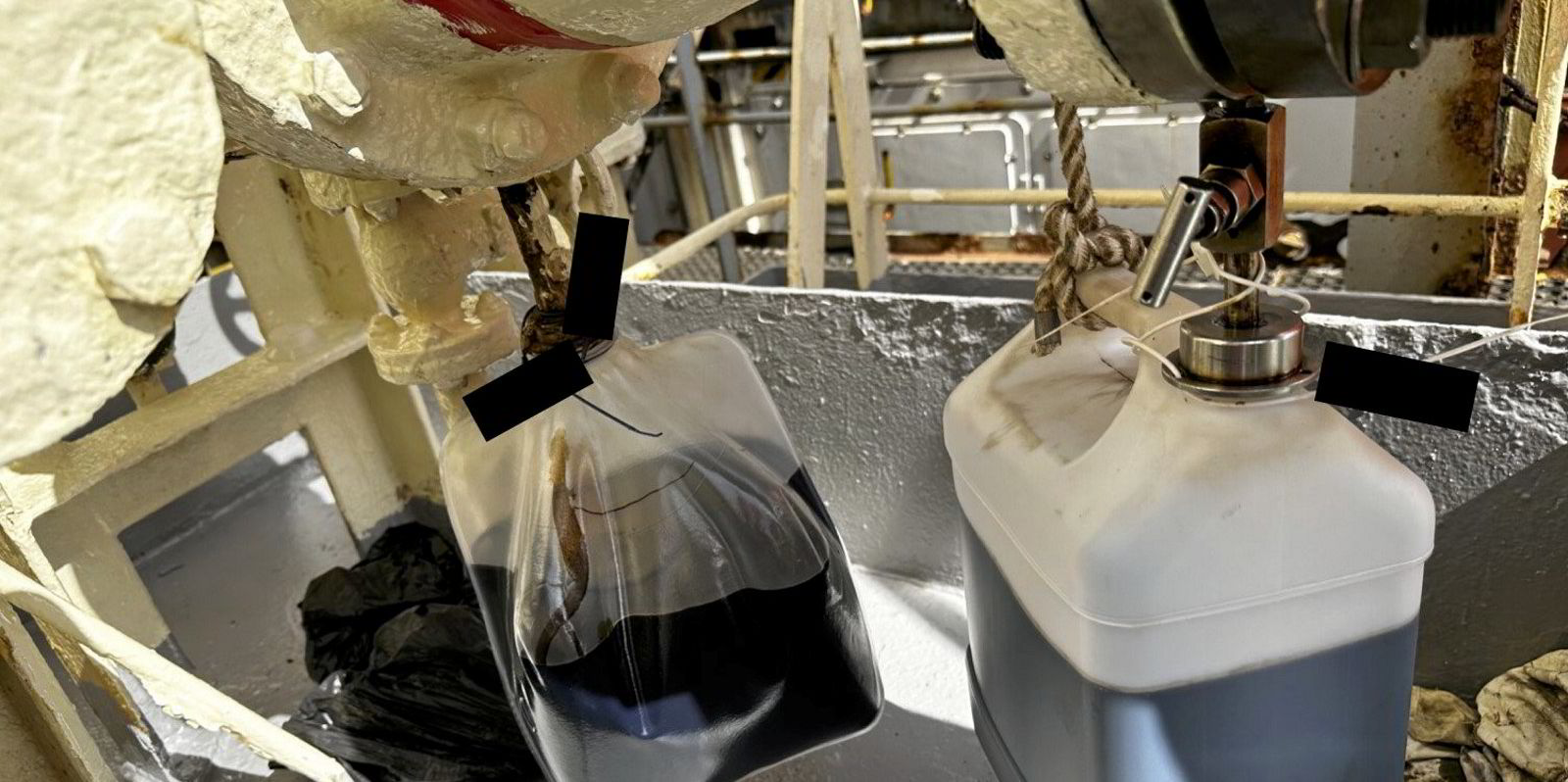
To ensure transparency and integrity of the supply chains for biofuels and biofuel blends from end to end, GCMD deployed a range of tracing techniques, including dosing with physical tracers, fingerprinting and a lock-and-seal methodology, which were complemented with laboratory testing and analyses at pre-determined points from fuel production to consumption.
To accomplish this, the centre also coordinated with the surveyors, tracer technology and laboratory test providers.
“Collaborating and sharing transparently with willing project partners enabled these trials to take place successfully despite the complexities of the marine fuel supply chain and uncertainties in bunkering operations,” it said.
The trials represent only two of the five supply chains in a larger pilot that aims to establish an assurance framework for the supply chain of sustainable biofuels.
This framework, to be further developed by GCMD and its partners, will also provide emissions abatement assurance for future synthetic and bio-derived drop-in fuels.
The full pilot, announced at the end of July 2022, involves 19 industry partners, with 13 boxships, tankers and bulkers bunkering in Singapore and Rotterdam.
Dr Prapisala Thepsithar, director of projects at GCMD, and project lead on this drop-in fuel assurance pilot, said: “Through these trials, we have gained a better appreciation of the complexities of real-world operations.
“We have learned the hard lesson that not all tracing techniques are directly applicable for tracing sustainable biofuels as they stand, and we are currently undertaking efforts to refine their deployment …These learnings will inform our subsequent trials in the months ahead.”
GCMD said the quality of the biofuel blends remained stable during the three-month trial.
With the data from the completed trials and additional data to be collected from the three other supply chains, GCMD is working with Boston Consulting Group, one of its “impact partners”, to develop a robust framework for greenhouse gas accounting and conduct a cost-benefit analysis of deploying biofuels.
Dr Sanjay Kuttan, GCMD’s chief technology officer, said the lack of assurance on the quality, quantity and emissions abatement of biofuels is a “pain point” that the centre identified from interviewing more than 100 stakeholders.
“These trials were curated to address this gap. In developing a framework to provide transparency and bolster the integrity of the biofuels supply chain, we hope to increase user confidence and decrease the barrier for wider adoption,” Kuttan said.
Commenting on the trials, ONE chief executive Jeremy Nixon said: “The maritime industry has many interconnected players, and collaboration is key in moving our decarbonisation ambition forward.
“It is encouraging to see the various partners at different points of the supply chain come together in this biofuel trial for the common goal of a better, more sustainable future.”
ONE has taken part in four biofuels trials. Nixon said the GCMD-led trial marked a step forward in his company’s goal to achieve net zero by 2050.
